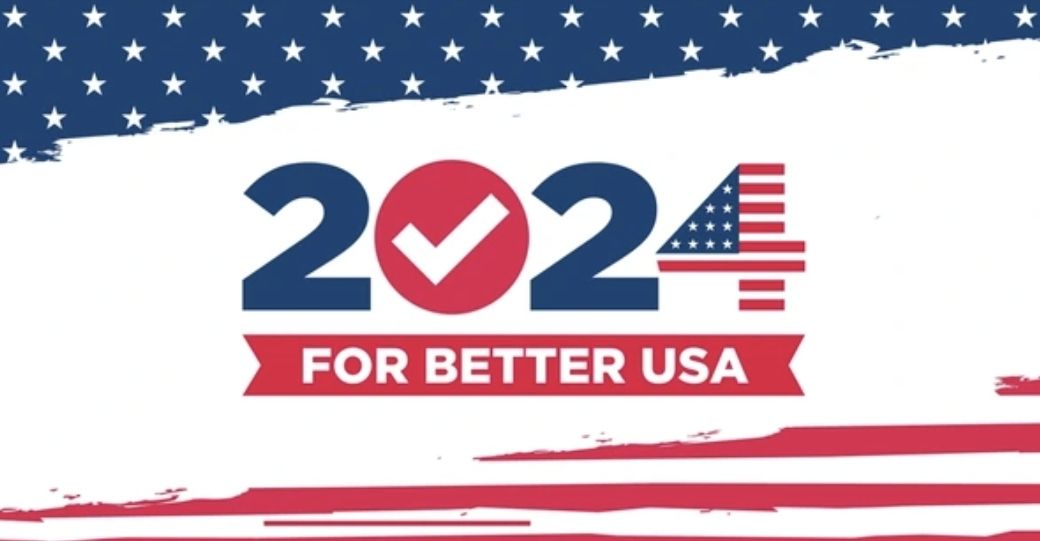Trump and Harris Face Off: Who is Better for U.S. Economic Prosperity?
- Bitcoin Drops to $70,000. U.S. Government Refuses to Bail Out Market, End of Bull Market or Golden Pit?
- Gold rallies further beyond $5,050 amid flight to safety, dovish Fed expectations
- Bitcoin Bottom Debate: $70,000 or $50,000?
- A Crash After a Surge: Why Silver Lost 40% in a Week?
- Bitcoin Slips Below 75,000 Mark. Will Strategy Change Its Mind and Sell?
- Bitcoin Rout. Bridgewater Founder Dalio Publicly Backs Gold.

Insights - Since Vice President Kamala Harris took over from Biden in the 2024 U.S. presidential election, the political landscape has shifted dramatically. This Wednesday morning (September 11), Harris and Republican candidate Donald Trump will face off in their first debate. Who would be more favorable for the U.S. economy and stock market?
Since August, financial markets have been grappling with the risk of a U.S. economic recession. The surge in the unemployment rate from the July non-farm payroll report triggered the "Sam Rule," causing a global market shock known as "Black Monday." Additionally, last week's August non-farm payroll report showed job growth falling short of expectations, leading the S&P 500 to experience its worst week in a year and a half.
Economic policies related to the 2024 election have become a major concern for investors, with "Trump trades" and "Harris trades" likely influencing the U.S. stock market in the second half of the year.
Debate Rules
The televised debate will be hosted by ABC, lasting about 90 minutes at the National Constitution Center in Philadelphia, without a live audience.
Harris previously requested that microphones remain on throughout the debate, likely aiming to better challenge some of Trump's character flaws. On the 5th, she confirmed acceptance of Trump's debate rules, which include muting each other's microphones during responses. Candidates will not be allowed to question each other directly.
Commentators believe that this debate is expected to be one of the most significant in decades, especially considering Trump’s survival of an assassination attempt and Harris’s rise after Biden's withdrawal.
Trump Economics vs. Harris Economics
Reports indicate that the debate will focus on domestic economic policies, including inflation, taxes, housing, and immigration. Harris’s policies largely follow “Bidenomics.”
Tariffs and Inflation: Trump advocates a comprehensive tariff plan, while Harris supports limited tariffs. Trump's tariffs are likely to drive inflation higher, potentially adding $2,600 annually to the costs for an average American household.
Nomura predicts that a second Trump administration would significantly raise inflation, leading the Fed to cut rates by half a percentage point less than expected next year, putting pressure on economic growth.
For the stock market, strategist Ed Yardeni notes that historically, a divided government yields higher stock market returns than one-party control. He warns that if investors believe one party will win decisively, the market may decline from recent highs.
Taxes: Trump plans to reduce the federal corporate tax rate to 15%, while Harris aims to raise it to 28%. Harris's “100-Day Plan” includes a $5 trillion plan to tax the wealthy, raising small business tax rates to 39.6% and increasing stock buyback taxes to 4%.
Analysts suggest these tax differences could lead to double-digit fluctuations in S&P 500 earnings. An IBD survey indicates that a stock buyback tax would discourage companies like Apple from repurchasing shares.
During Trump’s first two years, a Republican-controlled Congress passed the Tax Cuts and Jobs Act, resulting in a 29% increase in the S&P 500.
A study from the Wharton School estimated that a $1.2 trillion corporate tax hike could harm the economy, predicting a 1.3% reduction in GDP by 2034 under current policies.
Harris, however, aims to introduce a middle-class tax cut plan that benefits over 100 million Americans, although details are scarce. The Wharton School also notes that a $2.2 trillion middle-income tax benefit would further widen government deficits.
Housing: Trump has mentioned housing less frequently, while Harris plans to introduce a four-year plan to reduce housing costs, including a $25,000 down payment subsidy for first-time homebuyers and a 10,000 tax credit.
Immigration: Trump has long promoted anti-immigration rhetoric but recently indicated he would allow foreign graduates from U.S. universities to obtain green cards. Harris, known for her tough stance, aims to tighten immigration controls.
Goldman Sachs Optimistic on Harris's Policies
Goldman predicts that under a Harris administration with a Democratic-controlled Congress, job creation will exceed that of the Trump administration by 10,000 jobs per month when Trump was in power with a divided Congress. If Harris wins, it could create an additional 30,000 jobs each month compared to Trump winning with a Republican-controlled Congress.
This firm also highlights that spending plans and tax cuts targeting the middle class will slightly outweigh losses from higher corporate tax rates, leading to modest GDP growth in 2025 and 2026 under a Harris administration.
Analysts estimate Trump's economic plan could reduce U.S. GDP by about 0.5% in the second half of 2025. If Trump wins decisively or in a divided government, the impact of tariffs and tightened immigration policies on economic growth will outweigh positive fiscal stimulus.
Read more
* The content presented above, whether from a third party or not, is considered as general advice only. This article should not be construed as containing investment advice, investment recommendations, an offer of or solicitation for any transactions in financial instruments.




